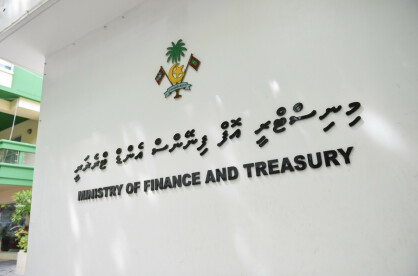On June 26, 2024, Fitch Ratings downgraded the Maldives' Long-Term Foreign Currency Issuer Default Rating from 'B-' to 'CCC+'. This decision primarily stems from increased risks associated with the country's external financing and liquidity. For the past few years, one of the biggest topics regarding the economic stability of the Maldives has been its increasing debt situation - which worsened following the COVID-19 pandemic. As the country continues to grapple with the worsening situation by implementing measures to manage its debt, the downgraded rating by Fitch comes as another strike, implying that the Maldives still has ways to go before it can overcome the hurdles of its increased debt.
Fitch Ratings, which is a credit rating agency that assesses the creditworthiness and risk of various entities and financial instruments, has highlighted that the Maldives faces significant challenges with its external financing and liquidity. This means that the country may struggle to obtain and manage the necessary funds from international sources to meet its financial obligations and support its economy. The downgrade reflects concerns about the Maldives' ability to access and handle these funds efficiently, which could impact its overall financial stability. As the Maldives heavily depends on international funds for its major projects, such as the infrastructure and development project that ensures housing and road development, this statement by Fitch Ratings highlights the need for the Maldivian government to yet again take a closer look into its debt management in order to overcome these challenges.
In response to these challenges, the Maldivian government is taking steps to address the situation. Notably, the Maldives’ cabinet recently endorsed a comprehensive fiscal reform agenda aimed at improving the country's financial health. These reforms are focused on two main areas: consolidating government expenditure and raising government revenue. By reducing its spending and increasing revenue, the government aims to achieve fiscal and debt sustainability over the medium term, which means having a more balanced budget and manageable debt levels. Although there have been some reforms to achieve these two main goals, these are some steps that the Maldives has been working towards since the former administration as well. In addition to reducing state-funded trips, in recent years the Government has also increased taxes as well as introducing plastic tax, which has proved successful in bringing in more revenue.
Fitch has indicated that if the Maldives can successfully implement its fiscal reforms and demonstrate a clear path toward reducing public debt levels, there could be a positive impact on future ratings. A stronger fiscal trajectory and commitment to economic diversification can help the country become more resilient to external shocks, such as global economic downturns or natural disasters, which in turn could improve its credit ratings.
Despite the current downgrade, the Maldivian government has expressed that the administration remains confident in its ability to meet all its debt obligations. In the statement released by the Finance Ministry of the Maldives, it was expressed that the Government officials believe that the robust economic outlook, coupled with the successful implementation of the planned fiscal reforms, will eventually be reflected in future rating reviews by Fitch and other credit rating agencies.






